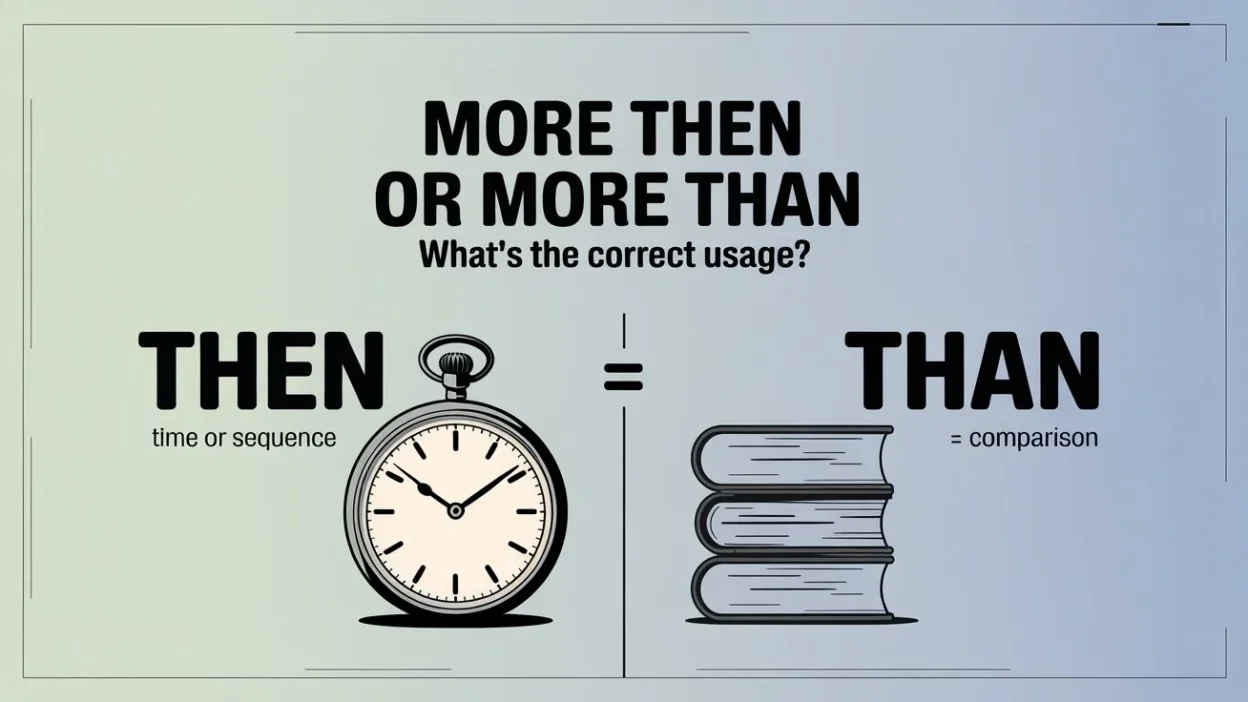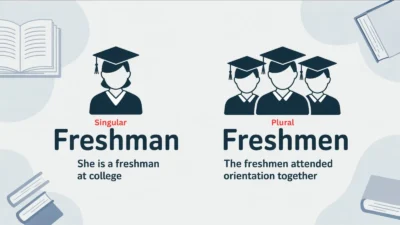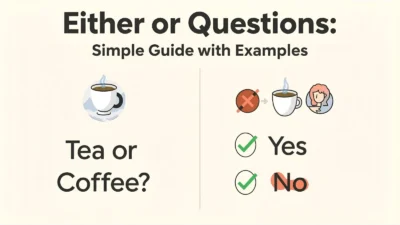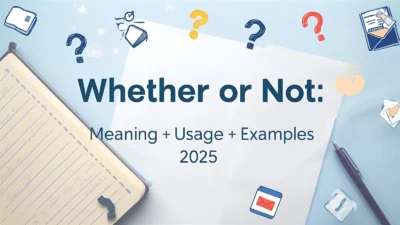Ever typed “more then or more than” and wondered which one is correct? I’ve made that mistake before too, so I completely understand your confusion.
If you’re a student, writer, blogger, or just someone who wants to sharpen their English, this guide is for you.
These two phrases look almost the same, but they’re used in very different ways—and mixing them up can change the meaning of your sentence.
Don’t worry, I’ll walk you through the difference step by step. By the end of this article, you’ll never second-guess this grammar rule again.
More Then or More Than – Quick Answer
✅ The correct phrase is “more than.”
- Correct: She has more than five years of experience.
- Incorrect: She has more then five years of experience.
“Than” is a conjunction used for comparisons.
“Then” is an adverb used for time or sequence.
The Origin of More Than
The word “than” comes from Old English þanne or þænne, used for comparisons.
The word “then” comes from Old English þænne as well but shifted meaning over centuries to indicate time or sequence.
Because they share a historical root, it’s no surprise people confuse them today.
British English vs American English Spelling
Both British and American English agree: the correct form is “more than.”
There’s no spelling difference between the two, but you may notice differences in sentence style.
| Phrase | Correct Usage | Example |
| More than | ✅ Correct | She is more than ready for the challenge. |
| More then | ❌ Incorrect | She is more then ready for the challenge. |
Which Spelling Should You Use?
- US audience: Always write more than.
- UK/Commonwealth audience: Same rule—more than.
- Global audience: Stick with more than to ensure clarity and professionalism.
There is no context where “more then” is correct in comparison.
Common Mistakes with More Then or More Than
- Mixing time with comparison
- ❌ She has more then ten ideas.
- ✅ She has more than ten ideas.
- ❌ She has more then ten ideas.
- Using “then” for quantity
- ❌ More then 100 people attended.
- ✅ More than 100 people attended.
- ❌ More then 100 people attended.
- Incorrect in formal writing
- ❌ More then anything, I value honesty.
- ✅ More than anything, I value honesty.
- ❌ More then anything, I value honesty.
More Than in Everyday Examples
- Emails: “We received more than 50 applications this week.”
- News: “The project will cost more than expected.”
- Social Media: “I love coffee more than sleep. ☕”
- Formal Writing: “This strategy delivers more than financial growth; it builds trust.”
More Then or More Than – Google Trends & Usage Data
Google search data shows people often type “more then” by mistake.
- Top searches: India, USA, UK, Philippines, and Nigeria.
- Correct usage: “More than” dominates in professional and academic content.
| Keyword | Popularity in Writing | Common in Searches |
| More than | ✅ Correct & dominant | ✅ Frequently searched |
| More then | ❌ Incorrect | ✅ Frequently searched |
FAQs
1. Is “more then” ever correct?
No. It is always incorrect when used for comparison.
2. Why do people confuse “more then” and “more than”?
They sound similar when spoken quickly, leading to spelling errors.
3. Can I say “then” after “more”?
Yes, but only if you’re talking about time. Example: “We need more, then we can continue.”
4. Which is used in exams and professional writing?
Always use more than.
5. Does British English ever use “more then”?
No. Both UK and US English use more than.
6. How do I remember the difference?
Think: “Than = comparison.”
7. What’s a quick check for correctness?
If you’re comparing numbers, amounts, or qualities, always use more than.
Conclusion
The confusion between “more then” and “more than” is one of the most common English mistakes. The correct phrase is always “more than” when making comparisons. The word “then” only refers to time or sequence, never comparison.
No matter if you’re writing for a US, UK, or global audience, more than is the only professional choice. Avoiding this mistake helps you write clearly, sound credible, and communicate with confidence.
So next time you pause at the keyboard, remember: comparisons always need “more than,” not “more then.”

I’m Emma Collins, a grammar expert and author at Grammarnestly.com. I love helping readers master English with simple, practical grammar guides.
When I’m not writing, I enjoy reading, coffee, and exploring the beauty of language.



